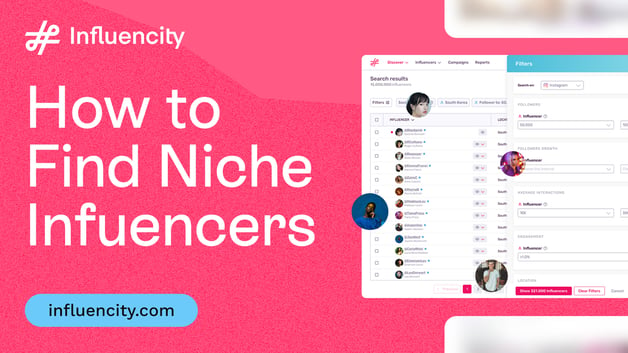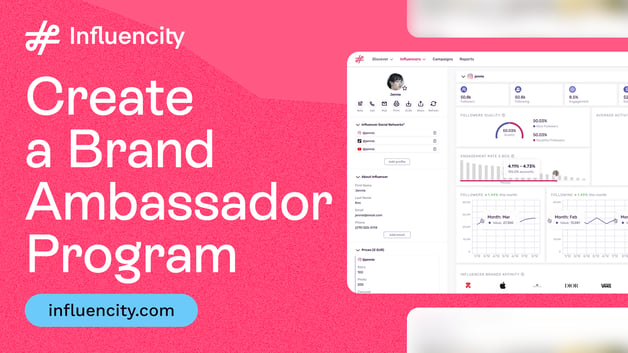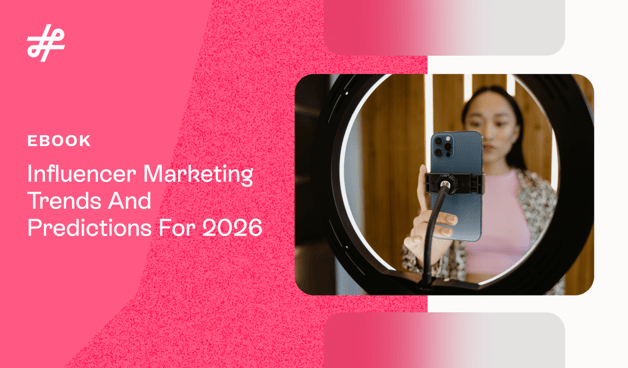The Future of Influencer Marketing: Trends and Predictions for 2030
Influencer marketing has become a staple advertising strategy in recent years, and its popularity is only expected to grow in the future. In fact, with the ongoing growth and evolution of the creator economy, influencer marketing will play an increasingly significant role in shaping the connections between brands and their customer base.
In this article, we will explore the evolving future of influencer marketing, identifying key emerging trends and developments that brands and marketers need to be aware of.
What is the Future of Influencer Marketing?
Influencer marketing has become a cornerstone of modern marketing, evolving from a niche strategy to a mainstream must for brands across all manner of industries. As consumers increasingly seek authenticity and trust in their purchasing decisions, influencers provide a unique bridge between brands and their target audiences. Their ability to create relatable, personalized content resonates in ways traditional advertising cannot, making them indispensable in the digital age.
The growing significance of influencer marketing is underscored by its adaptability to emerging trends. B2B and B2C brands are not just partnering with influencers for reach; they are leveraging them to foster deeper connections and drive engagement. This shift is setting the stage for several transformative trends that will redefine the industry. From the integration of sophisticated data analytics to the rise of micro and nano influencers, and the incorporation of technologies like AI and AR, the future of influencer marketing promises more targeted, authentic, and impactful campaigns. As the industry continues to evolve, brands that embrace these changes will be better positioned to thrive in an increasingly competitive market.
So, let’s take a look at the future of influencer marketing and the emerging trends that are shaping the industry in a bit more detail.
Influencer Marketing Will Become More Data-Driven
In the future, influencer marketing will become even more data driven. Companies will increasingly rely on advanced analytics and technology to measure the effectiveness of their influencer campaigns. This data-driven approach will involve audience segmentation, predictive analysis, AI and machine learning, fraud detection, real-time monitoring, and attribution modeling.
The future of influencer marketing will also bring data that can be used to further drive the industry through:
- Influencer discovery: Brands can use data to identify influencers who have a real time large and engaged following among their target audience.
- Campaign performance measurement: Brands can use data to track the performance of their influencer marketing campaigns in terms of reach, engagement, and conversions in real time.
- Campaign optimization: Brands can use data to identify the influencers and content that are most effective at driving results and to optimize their campaigns over time.
One notable example of this strategy is L'Oréal Paris, which has used data-driven strategies to discover and partner with influencers that align perfectly with their brand values and target audience. By analyzing social media data and engagement metrics, L'Oréal successfully identified beauty influencers for its #WorthSaying campaign who could effectively communicate their brand message, leading to more targeted campaigns and enhanced customer engagement.
Ultimately, as influencer marketing continues to evolve, it will become increasingly important for brands to use this data to drive their campaigns. That way, they can ensure that they are partnering with the right influencers and creating data driven content that is effective at reaching and engaging their target audience.
Rise of Shoppable E-Commerce
As consumers increasingly seek seamless and convenient shopping experiences, the future of influencer marketing will see the industry continue to adapt to meet these demands. In fact, influencers, with their authentic connections to their followers, have become pivotal in driving engagement and conversions in this sense.
Shoppable e-commerce leverages this by enabling influencers to transform their content into direct sales channels. With the integration of clickable product links and affiliate partnerships, influencers can guide their audience from inspiration to purchase with a simple tap or click. This synergy benefits brands by expanding their reach and boosting ROI, while influencers benefit from increased monetization opportunities.
Moreover, this trend is fostering a more immersive shopping experience, blurring the lines between content and commerce. As influencers continue to shape consumer preferences, the future of influencer marketing will lie in harnessing the power of shoppable e-commerce to create a seamless and gratifying shopping journey for their followers.
Kylie Cosmetics, owned by Kylie Jenner, is a leading example of shoppable e-commerce. Kylie frequently uses her Instagram posts to feature her products with direct links to purchase, seamlessly converting her massive following into customers. This strategy has proven to be highly effective, with products often selling out within minutes.
Emphasis on Authenticity
Consumers are becoming increasingly skeptical of traditional advertising, and they are looking for brands that they can trust. This is why authenticity is so important for the future of influencer marketing. Brands need to collaborate with influencers who are genuine and who their followers believe in. Brands will also need to be more transparent about their paid partnerships with influencers.
It will also be important to give influencers the freedom to create content that is true to themselves when you work with them. Don't try to micromanage their content or force them to promote your products in a way that is not authentic. Encourage them to share their honest opinions and experiences with your products so that they can build brand trust with their followers on your behalf and promote more credible recommendations.
One successful example of this approach is the collaboration between Dunkin' and TikTok influencer Charli D'Amelio. Dunkin' allowed Charli to authentically promote her favorite drink, "The Charli," which resonated with her followers because it was a genuine part of her routine. Instead of heavily scripting the campaign, Dunkin' let Charli share her experience in her own style, which led to a significant boost in sales and brand engagement. This highlights the importance of giving influencers creative freedom to maintain authenticity and build trust with their audience.
@charlidamelio the best part of any day @Dunkin' #dunkinpartner ♬ original sound - charli d'amelio
Emergence of New Technologies
New technologies are also expected to have a significant impact on the future of influencer marketing. For example, AI can already be used to automate tasks such as influencer discovery and campaign management. This frees up brands and marketers to focus on more strategic aspects of their campaigns.
In addition to AI, the metaverse is poised to revolutionize influencer marketing in the coming years. The metaverse, a virtual shared space merging physical and digital realities, will open up entirely new avenues for influencers to engage with audiences. Influencers will be able to establish a presence within these immersive digital worlds, creating unique and interactive experiences for their followers.
Gucci has pioneered the use of the metaverse in influencer marketing. The brand launched virtual sneakers, allowing influencers to showcase and sell digital fashion items in the metaverse, blending the physical and digital shopping experiences. This innovative approach has opened new avenues for brand engagement in virtual environments.
The Growth of AI-Powered Platforms
The growth of AI-powered platforms is poised to revolutionize the future of influencer marketing. These platforms are redefining how brands identify, engage, and collaborate with influencers. AI algorithms can analyze massive datasets to pinpoint the most relevant influencers for a given campaign, factoring in audience demographics, engagement metrics, and content authenticity.
Moreover, AI-driven tools are enhancing content creation and optimization. They can suggest ideal posting times, recommend content themes, and even generate personalized captions. This not only streamlines influencer content creation workflows but also ensures that said content resonates with target audiences.
Additionally, AI-driven analytics, such as those offered through Influencity’s platform, provide in-depth insights into campaign performance, enabling real-time adjustments. This data-driven approach allows brands to maximize their ROI, as they gain a deeper understanding of what works and what doesn't.
A notable example of a brand using AI to manage its influencer campaigns is Estée Lauder with its Advanced Night Repair campaign. Estée Lauder used AI to identify and collaborate with influencers who were most aligned with their target audience for this skincare product. The brand used AI-driven analytics to analyze social media data, such as audience engagement and demographic insights, allowing them to pinpoint influencers who could effectively communicate the benefits of their product to the right audience. This strategic use of AI in influencer marketing highlights how technology can enhance the precision and impact of brand campaigns.
Cross-Channel Marketing
As the digital market becomes increasingly fragmented, cross-channel marketing is emerging as a crucial trend in the future of influencer marketing. This approach involves engaging influencers to promote content across multiple platforms—such as Instagram, TikTok, YouTube, and blogs—ensuring a consistent brand message reaches diverse audience segments. The future of influencer marketing lies in these integrated campaigns, where each platform's unique strengths are harnessed to create a more dynamic and widespread brand presence.
By adopting a cross-channel strategy, brands can deepen their connection with consumers through multiple touchpoints, enhancing both visibility and engagement. For instance, an influencer might introduce a product in a TikTok video, provide a detailed review on YouTube, and share lifestyle images on Instagram, creating a comprehensive narrative that resonates across various audiences. This cohesive approach not only amplifies brand reach but also builds a more robust and trustworthy relationship with consumers, ultimately driving better results in an increasingly competitive market.
A notable example of successful cross-channel marketing is Adidas’ #OpenForum campaign, which was launched in 2021 to revive the classic basketball sneaker, the Forum. Adidas collaborated with over 50 creators across Instagram, leveraging the platform's Reels feature to engage a younger audience. The influencers shared visually appealing content that highlighted their personal style while showcasing the Forum sneakers. But this campaign wasn't limited to just Instagram; it was supported by various other social media channels, ensuring a broad and cohesive brand message across different platforms. The campaign successfully increased visibility, brand engagement, and product recall.
How the Future of Influencer Marketing Will Impact Brands and Marketers
Summing up what we have discussed today, the future of influencer marketing is bright, but there are a few things that brands and marketers need to keep in mind in order to be successful:
- Firstly, brands need to focus on authenticity. They need to partner with influencers who are genuine and who their followers believe in.
- Secondly, brands need to be transparent about their paid partnerships with influencers. Consumers appreciate transparency, and it can help to build trust.
- Thirdly, brands need to be open to new technologies. AI and the metaverse are just two examples of technologies that can be used to enhance influencer marketing campaigns.
Finally, brands will need to embrace the power of data and invest in platforms and applications that enable them to extract actionable insights from their influencer marketing efforts. These insights will guide decision-making, refine targeting, and optimize campaigns for better results, helping brands to position themselves to succeed in the future of influencer marketing.
Tags:







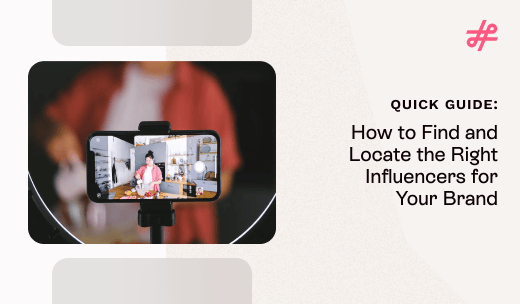


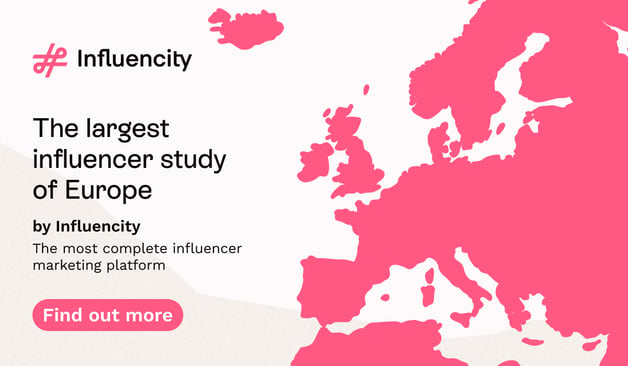

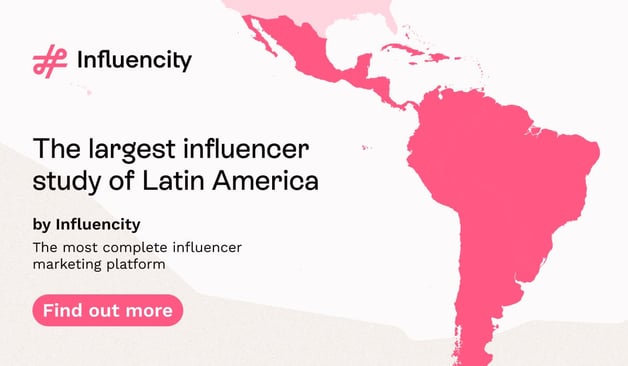







%20and%20How%20Can%20They%20Benefit%20Your%20Brand%20article.jpg?length=628&name=What%20Are%20Key%20Opinion%20Leaders%20(KOL)%20and%20How%20Can%20They%20Benefit%20Your%20Brand%20article.jpg)
